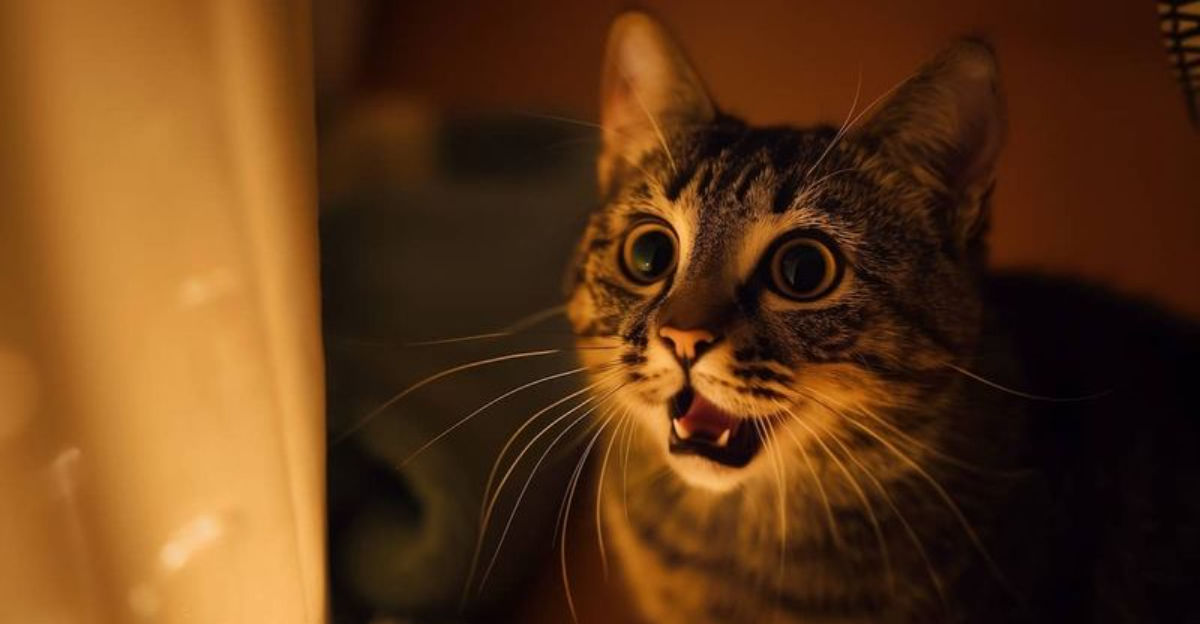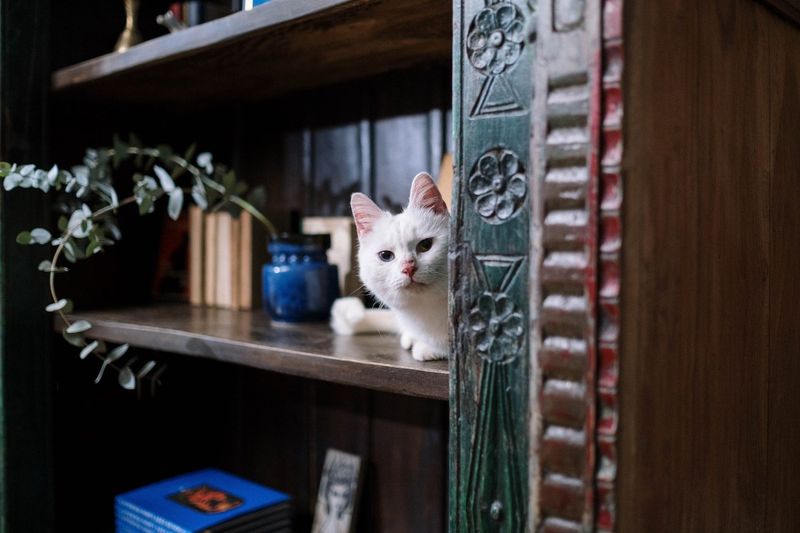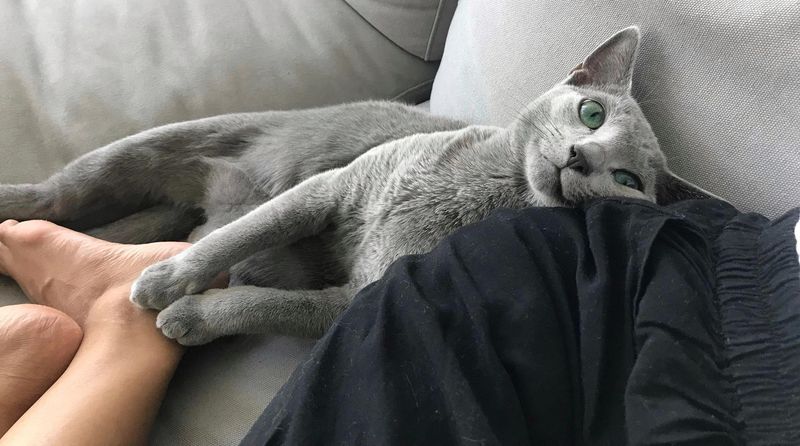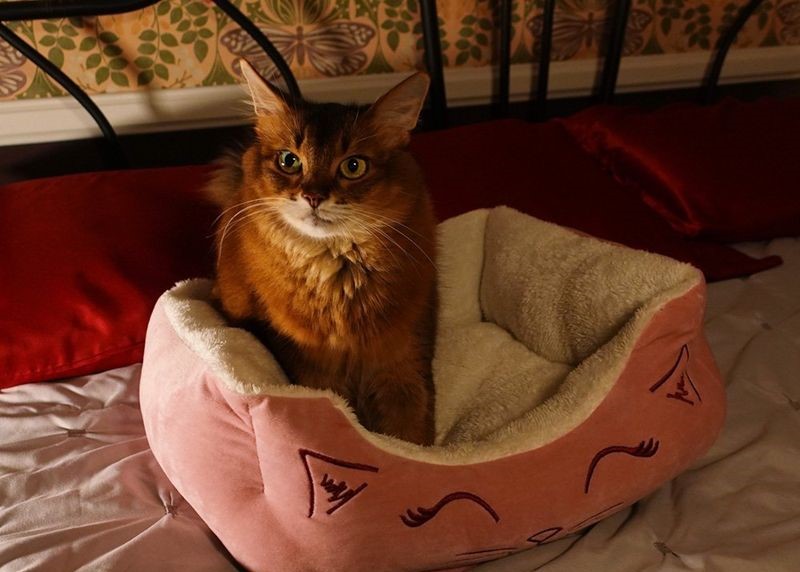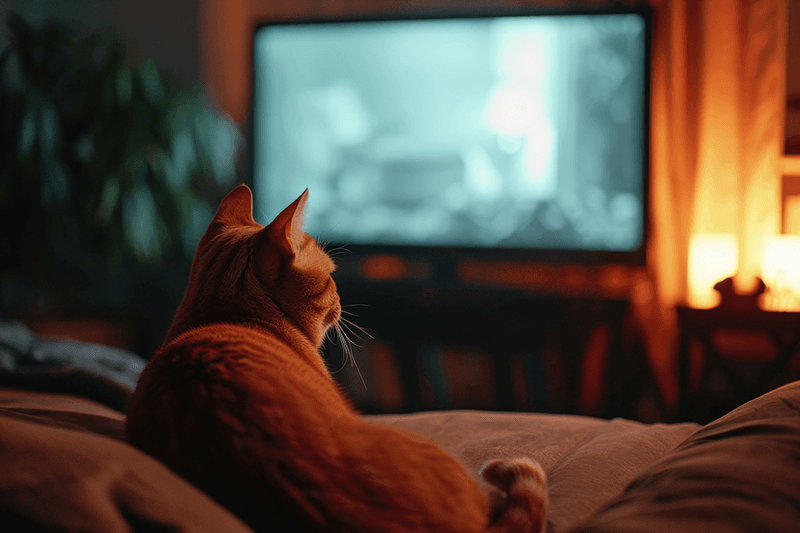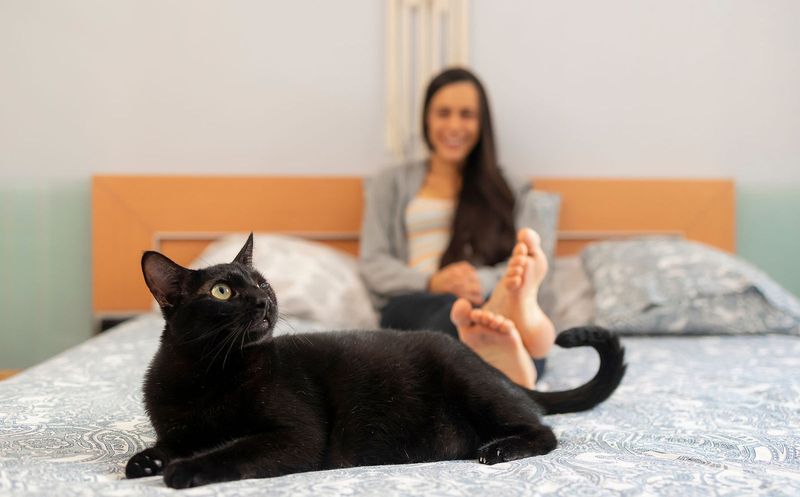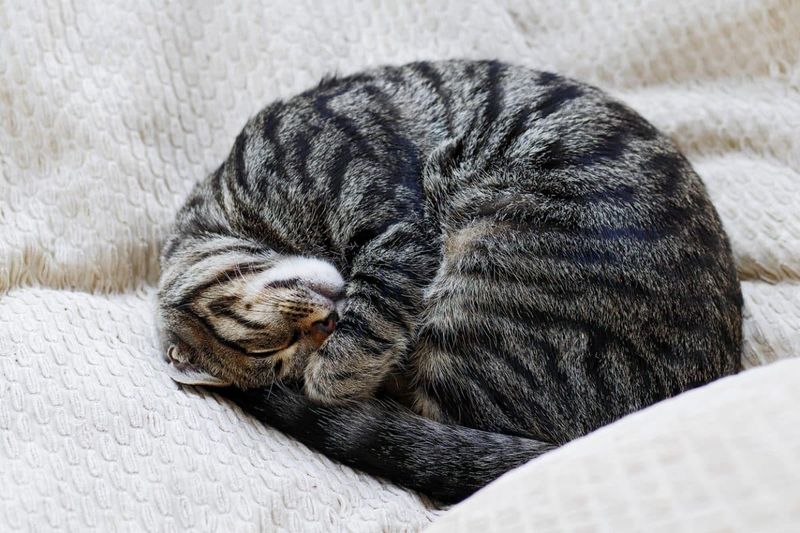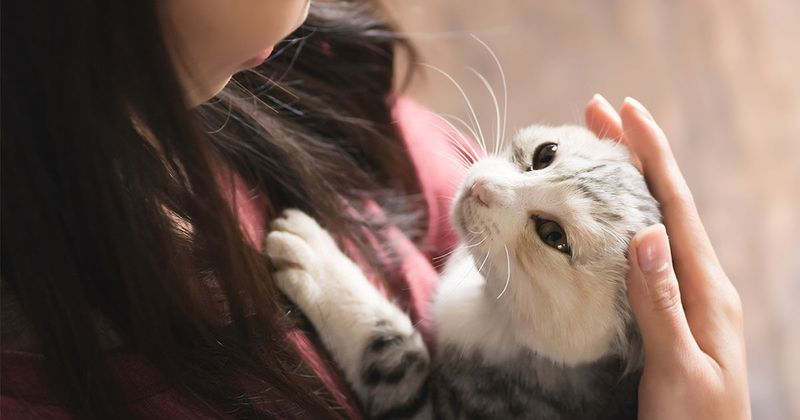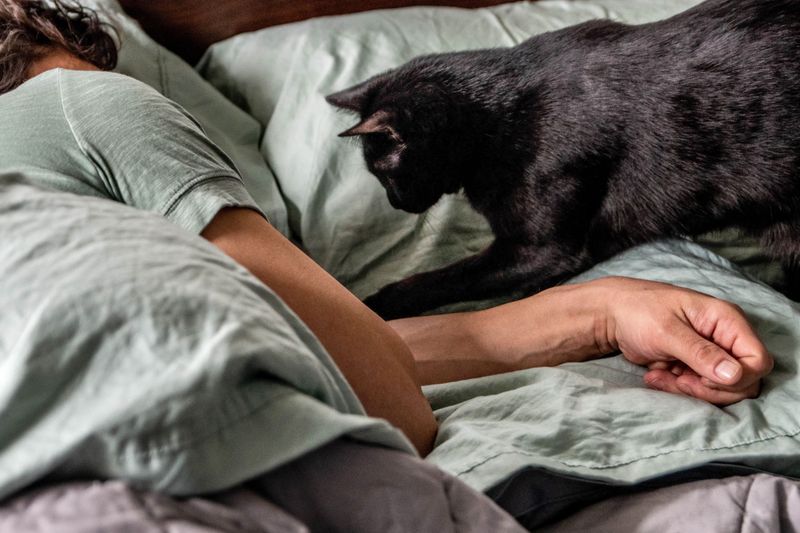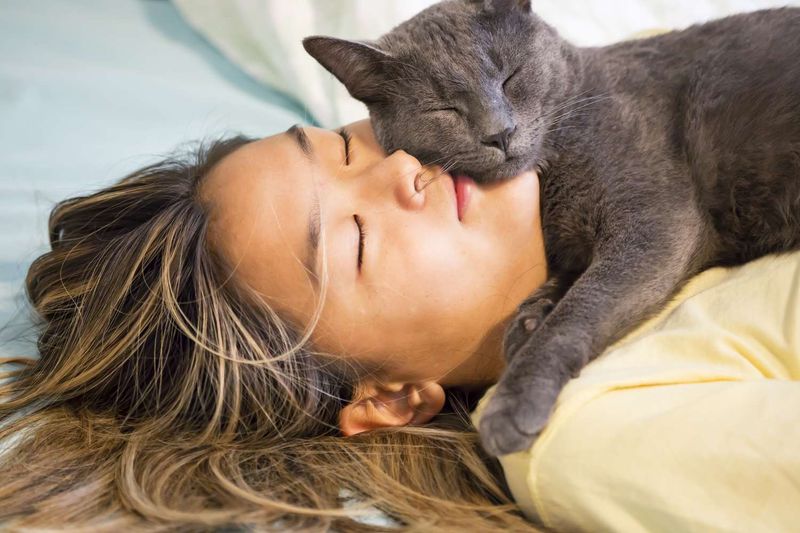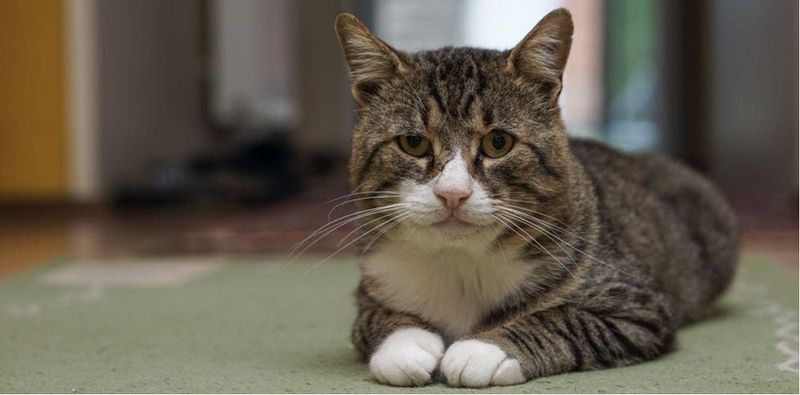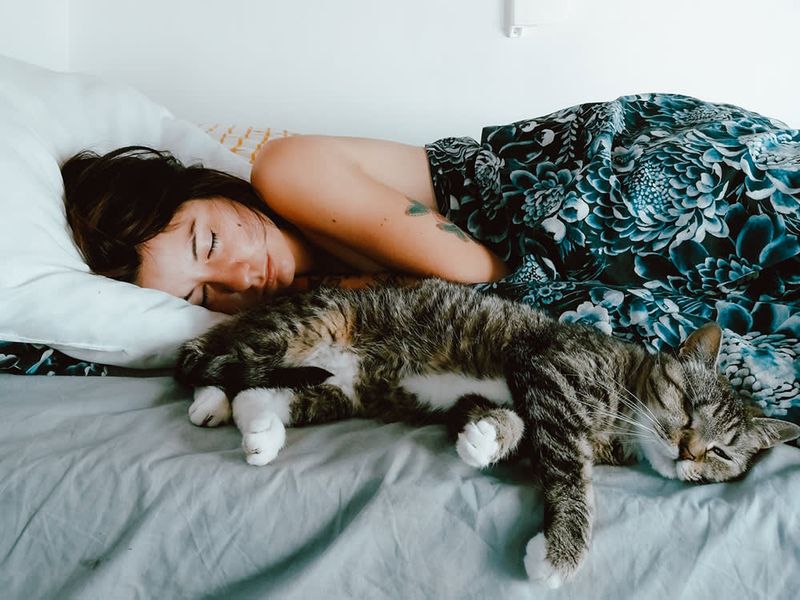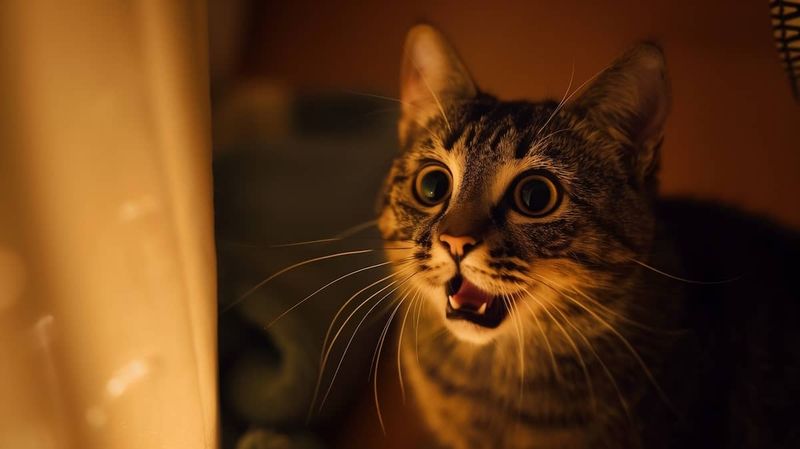📖 Table of Content:
- 1. Separation Anxiety
- 2. Loneliness
- 3. Routine and Habit
- 4. Boredom or Lack of Stimulation
- 5. Hunger or Feeding Schedule
- 6. Cold Temperatures
- 7. Health Issues or Discomfort
- 8. Fear of the Dark or Nighttime Noises
- 9. Territorial Reassurance
- 10. Age-Related Changes
- 11. Strong Bond with Owner
- 12. Hormonal Changes or Mating Behavior
If your feline friend turns into a purring shadow at bedtime, curling up beside you, following your every move, or meowing until you acknowledge them, you’re not alone. This sudden surge of nighttime clinginess can be confusing, especially if your cat seems self-sufficient during the day.
While some evening affection is endearing, an overly attached cat can disturb sleep or signal deeper emotional or physical needs. Understanding why this behavior crops up specifically at night is key to helping your cat feel secure—and helping you reclaim your rest. Whether it’s anxiety, boredom, or a cry for attention, there’s usually a logical reason behind the affection overload.
In this article, we’ll explore 12 possible causes for nighttime clinginess in cats. Each one provides insight into your cat’s behavior and helps you determine how to respond appropriately. Let’s dive into the heart of the feline cuddle mystery and decode why your cat can’t get enough of you when the stars come out.
1. Separation Anxiety
Throughout the day, your cat may experience low-level stress when you’re away, which builds into an emotional need for reassurance by night. When you finally return home or settle down, your presence becomes the comfort they craved all day. This form of feline separation anxiety may manifest through excessive cuddling, constant following, or even loud vocalizations. Rather than simply enjoying your company, your cat may be clinging to you as a way to manage their internal stress. It’s more common in cats who have strong bonds with their humans or have experienced past trauma. Providing consistent attention and stimulation throughout the day can reduce this behavior. Over time, they’ll learn that they’re safe and loved—even when you’re not always nearby.
2. Loneliness
Despite their reputation, cats aren’t loners by nature—they often crave interaction and companionship. A lack of regular social engagement can leave your cat feeling isolated, especially if you’re busy or away during waking hours. Once nighttime hits, they seize the opportunity to connect and make up for lost time. They might curl against you persistently, purr loudly, or paw at you for affection. This nightly ritual isn’t just about habit—it’s your cat’s attempt to fill an emotional void. Incorporating more daily engagement can help curb the intense nighttime clinginess. Companionship, even in small doses, can go a long way toward keeping your cat emotionally balanced.
3. Routine and Habit
Cats are creatures of habit and learn routines quickly—sometimes faster than we expect. If your evenings consistently involve cuddles, treats, or even just quiet time together, your cat will come to anticipate it. That anticipation can morph into insistence, turning gentle affection into full-on clinginess. They’re not just reacting to you—they’re responding to an internal schedule they’ve built based on your behavior. Disrupting this can lead to confusion or even protest behaviors like excessive meowing. Gradual shifts in your evening routine may be necessary if the clinginess becomes problematic. Still, many owners embrace this as part of their bond, reinforcing the emotional rhythm between cat and human.
4. Boredom or Lack of Stimulation
When cats don’t get enough physical or mental stimulation during the day, they tend to seek it when you’re trying to wind down. Left without outlets for play or enrichment, your cat may act out or become overly affectionate at night as a form of attention-seeking. This behavior isn’t always a cry for love—it’s often a cry for something to do. Activities like climbing, hunting, and exploring are essential to a cat’s well-being and should be built into their daily life. Without these, even a well-fed, healthy cat may grow restless and needy. Nighttime becomes their last shot at stimulation—and you’re the main attraction. Incorporating interactive toys or daytime play sessions can significantly reduce this behavior.
5. Hunger or Feeding Schedule
Mealtime expectations are a powerful driver of cat behavior, especially when those meals are inconsistent or late. If your cat associates bedtime with feeding—even just a small treat—they’ll likely seek you out persistently at that time. Their clinginess may be less about emotional need and more about hunger cues kicking in. This can include nuzzling, pawing, or even positioning themselves near food areas while staying close to you. Over time, this pattern reinforces the association between nighttime and food. Establishing a regular feeding routine can help reset your cat’s internal clock. Just be careful not to reward late-night demands, or you may reinforce the very behavior you’re trying to fix.
6. Cold Temperatures
Even the fluffiest cats can get chilly, especially if your home cools down significantly at night. Your body heat becomes an irresistible source of warmth and comfort. This leads to extra cuddling, burrowing under covers, or curling up tightly against you. While it may feel like clinginess, it’s often a practical choice for staying cozy. Certain breeds with thinner coats are more susceptible to cold and will seek you out more frequently when the temperature drops. Providing heated beds or cozy sleeping spots can help redirect this behavior. Still, many cats will prefer your warmth over any other source.
7. Health Issues or Discomfort
Subtle physical discomfort can drive a cat to seek comfort and reassurance from their favorite human. Illness, injury, or even chronic conditions like arthritis might cause your cat to become more clingy, especially in the quiet hours of the night. When distractions are fewer, discomfort becomes more noticeable to them. You may notice changes in behavior like increased vocalizations, restlessness, or excessive grooming paired with clinginess. It’s important to take any sudden or intense shift in behavior seriously. A visit to the vet can help rule out medical issues. Catching health problems early can make a huge difference in your cat’s quality of life.
8. Fear of the Dark or Nighttime Noises
Unfamiliar nighttime sounds—like wind, pipes creaking, or animals outside—can make cats feel vulnerable. During these moments, their instinct may be to seek security by staying close to you. This need for protection can look like clinginess, especially when it happens consistently after dark. While cats are generally confident hunters, they can be surprisingly sensitive to changes in their environment. Even low, barely audible noises can trigger anxiety. Calming tools like white noise machines or cozy hiding spots can help reduce their fear. Knowing you’re near may still be their top choice for comfort.
9. Territorial Reassurance
When a cat’s environment changes—whether it’s a new pet, a move, or even different furniture—they may feel uncertain or threatened. This unease can manifest as clinging to you, their most stable source of reassurance. Nighttime intensifies these feelings, as it’s quieter and more vulnerable. You’ll notice them sticking close, following you, or watching doors or windows intently. Their clinginess isn’t just emotional—it’s strategic and rooted in survival instincts. Offering consistency and limiting environmental stressors can help restore confidence. Over time, your cat should regain their sense of security and independence.
10. Age-Related Changes
As cats age, they may develop cognitive issues, such as feline cognitive dysfunction (similar to dementia in humans), which can increase anxiety and dependency. Nighttime, with its darkness and silence, can be especially disorienting for senior cats. They may seek you out more often simply to feel grounded and safe. You might also observe changes in sleep patterns, pacing, or vocalizations alongside clinginess. These behaviors can be distressing for both of you, but they often have solutions. Creating a calm, well-lit nighttime environment can ease your cat’s confusion. Consulting your vet for supportive treatments is also a wise step.
11. Strong Bond with Owner
Sometimes, clinginess has no deeper meaning—it’s just love in its purest feline form. If your cat has formed a strong emotional bond with you, they may naturally gravitate toward you at the end of the day. Your presence brings them peace, security, and happiness. They’re not trying to be demanding—they simply want to be close. This bond often develops through consistent care, positive reinforcement, and shared routines. While it can feel overwhelming, it’s also a reflection of the trust you’ve built. Cherish it—but set boundaries if needed to protect your rest.
12. Hormonal Changes or Mating Behavior
Unneutered or unspayed cats may display increased affection as a result of hormonal fluctuations. Nighttime often triggers more vocal and physical activity related to mating instincts, including excessive rubbing or restlessness. Your cat’s clinginess may be intertwined with these natural biological drives. This is more common in younger cats or those exposed to other cats nearby. The behavior can seem unpredictable or out of character, but it’s driven by strong biological signals. Spaying or neutering often helps calm this type of behavior. Consulting your vet can guide you toward the best solution for both your cat and your household.
